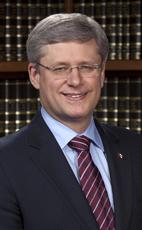The parliamentary secretary asks if they got there. No, they did not get there. And there is no guarantee we will get there this time either.
The last government did not get there because it did not have a plan and because everything it did was eaten up by increased interest payments. But I will say that this government does have a partial plan to get there. What is that plan? Very simply it is to attack the slash and burn Reform Party while slashing in particular social programs far deeper than the Reform Party ever proposed.
In the 1993 election we said to cut unemployment insurance by $4.5 billion. There were howls of outrage from the Liberal Party. The Liberals have already cut the program which was at $20 billion at its peak under the Tories and which is now paying out $13.5 billion today with more cuts to come as proposed in the bill the government tabled in the last session and will table again.
We said to make old age security based on income and not to pay it to anyone with an income above $53,000. The Liberals now propose exactly the same policy. No more universality. Make old age security based on income. Except now it is based on $40,000 instead of $53,000.
We said to cut the Canada assistance plan by roughly 10 per cent, $750 million. The Liberals have done exactly that and there are more cuts to come in the next two or three years.
In our 1993 election proposals we said we did not need to cut post-secondary education at all to balance the budget. The Liberals have already cut it 10 per cent and there is more to come.
We said not to cut health care funding. It is the most important priority of all Canadians. The Liberals said they would not. They said they would preserve the five principles of the Canada Health Act. They have cut health care by 10 per cent and there is more to come. There are still the five grand principles; there will just be no money to implement them.
In fact, in these last three areas, the Canada assistance plan, health care and post-secondary education, in the next two to three years the Liberal Party will cut over $7 billion in cash payments to the provinces. This will be the principal means by which the Liberals will reduce the deficit.
What is still there that we have proposed to cut that the Liberal Party has not cut? The Liberals have not cut the regional pork, the regional development programs. They did not cut the funding to the special interest groups. All those programs are still there. And of course, they still have their gold plated MP pensions.
What happened to the other promise, the one about jobs? We were told we did not have to worry about the deficit because we were creating jobs instead. Well, there is no jobs plan in the budget. There is not even an estimate on jobs in the budget. It is unprecedented in my 10 years of experience in federal politics to not even provide employment estimates.
The Liberals say cutting is not an end in itself. Cutting is apparently not an end in itself. Cutting is done by the government not as an end in itself but in order to protect friends, in order to send out political messages, in order to attack the Reform Party, in order to mask fiscal incompetence. In other words, the government cuts spending in order to make programs, in order to make taxpayers and in order to make jobs the targets of our policies instead of the winners; to make them the victims instead of the winners.
The Liberals were elected in 1993 by telling people what they wanted to hear: there would be no GST, no free trade, no distinct society, lots of jobs, universality of pensions and do not worry about the deficit.
Canadians have to make a very serious decision next time of whether they will be fooled again.

